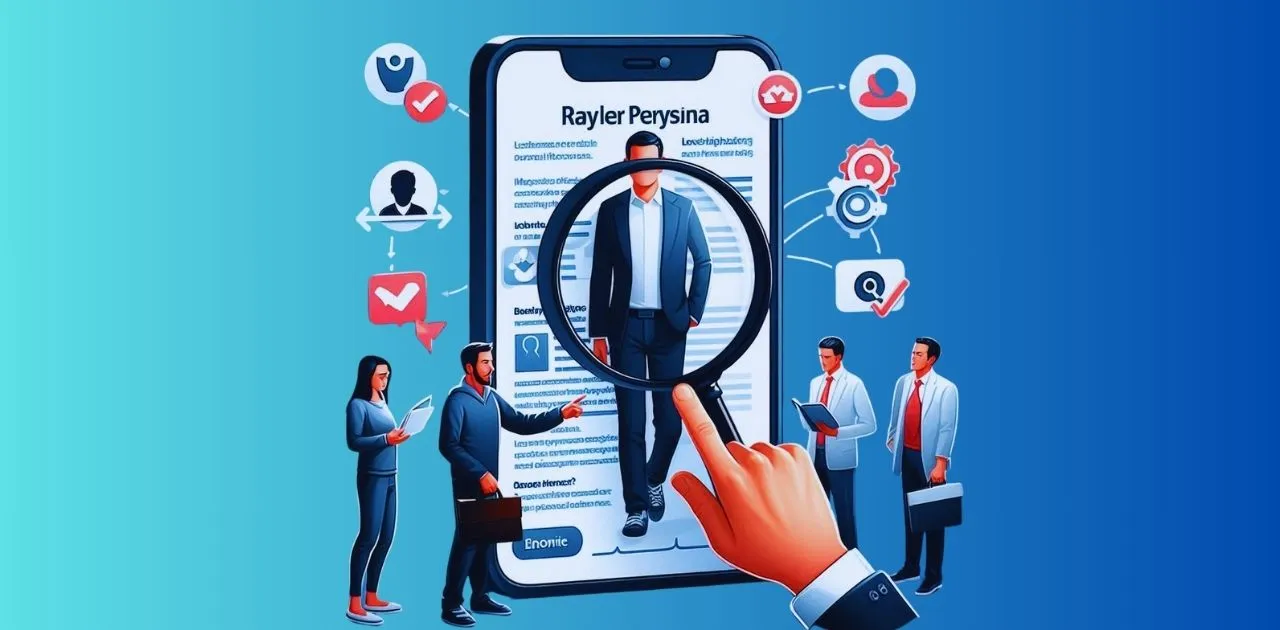Digital technology is part of everyone’s daily routine. Think about it: you wake up to an alarm on your phone, check the news on your device, watch TV during breakfast, use screens in your car, spend hours on a computer at work, and unwind with Netflix at home.
These are just a few examples of how screens dominate our lives. Understanding and developing healthy digital habits are essential to balance this screen time effectively.
It is equally important for kids and students to develop healthy digital habits for effective and productive use of technology. It is vital to know about exposure to excessive blue light from the screens and its implications for your health.
Table of Contents
What is Meant by Digital Habits?
The habits that are related to digital technology and its use are called digital habits. They can be healthy or unhealthy. These habits concern digital devices and media. Digital habits are sometimes known as digital etiquette, the electronic rules that govern the use of digital devices and how to interact with others.
What are Healthy Digital Habits?
Healthy digital habits are those habits that make your life productive while using technology and digital devices. They ensure the best health options and practices to maintain a digital-life balance for maximum output. Healthy digital habits help you maintain overall well-being in an increasingly connected world.
Importance of Good/Healthy Digital Habits
There were 311.3 million internet users in the USA at the start of 2023. The USA was home to 246.0 million digital media users equating to 72.5 percent of the total population. It was found that the users spent 7-8 hours daily on their screens in the United States of America.
Based on such a large number of users and the high amount of time they spend on digital media, it is essential to know why it is important to adopt healthy digital habits and stop the unhealthy.
Healthy digital habits are super important for everyone, especially kids and students. When you use your phone, tablet, or computer wisely, you can stay healthy and happy.
- Better Sleep: Using screens too much, especially before bed, can mess up your sleep. Healthy digital habits, like turning off screens an hour before bedtime, help you sleep better.
- Good for Your Eyes: Staring at screens for a long time can hurt your eyes. Taking breaks and using blue light glasses can keep your eyes healthy.
- More Fun Time: Limiting screen time means you have more time for fun activities like playing outside, reading, or hanging out with friends and family.
- Stay Focused: When you set rules for using digital devices, like not multitasking, you can focus better on one thing at a time. This helps you do well in school and other activities.
- Feel Happier: Too much screen time can make you feel stressed or anxious. These better digital habits help you feel more relaxed and happy.
Remember, balancing screen time with other activities is the key to a happy and healthy life. Start practicing healthy digital habits today!
11 Healthy Digital Habits with Examples
“Establishing boundaries with technology use is crucial for maintaining mental health and well-being. Digital detoxes and mindful usage can lead to a more balanced life”. Dr. Kimberly Young, Internet Addiction Specialist.
Some of the important digital habits you should adopt are the following.
1. Establish Screen Time Boundaries
As an active user of digital media, you should differentiate between addiction and normal use. If you are addicted to using digital media, it is going to affect you as it has harmful impacts. In such cases, set aside and establish certain boundaries.
Limit your screen time. Decide specific hours for using the internet and being online. Don’t remain online 24/7. Use digital devices for a few hours and enjoy the time away from such devices. Engage yourself in other physical activities where you are not using your phone or PC.
It is enough to use the internet for 2-3 hours a day. Don’t exceed this limit. Use certain apps or digital tools, which are often built-in features to track and manage the time spent on smartphones, tablets, and computers. You can reduce the negative effects of screens by allocating specific periods for their use.
2. Avoid Multitasking
Perform one task at a time and minimize doing multiple things. Only be involved in a few things when using digital devices. It will consume more time, resulting in less output. Focus on a single task to get the best results and high productivity.
For example, if you are working on a university project online and at the same time using your social accounts it will ruin your time. First, complete your project. After that, you can use the other accounts. By doing so, you can do your work in less time with maximum benefit. That’s why, avoiding distraction is one of the good classroom habits.
When using any digital tool or media, you should pay attention to it. Do not just listen or watch without learning anything. If you want to learn and make your time productive, avoid multiple things and focus on a single task. This ensures that you are present in your digital use.
3. Create Tech-free Zones and Times (Digital Detox)
Tech-free zones and times mean that there needs to be a certain place, area and a specific time in which you should not use smartphones or screens. Set a place in your home where there is no digital device. It can be a room, a corner, or a balcony of the house where you can enjoy offline time.
While making a daily schedule you should include offline hours in it. Allocate time for family, friends and daily house chores. Successful people even specify a day when they do not use phones and PCs as part of their care.
A digital detox in this regard is very helpful. There are various options, such can doing a daily digital detox where some hours are specified for offline tasks or a week to be spent offline.
A digital-life balance of this type helps you make a strong connection with the real world and reduces dependency on mobile phones. Do not place wi-fi routers and other digital tools in living places. They emit EM radiation, which is harmful to your health.
4. Prioritize Sleep Hygiene
Sleep is the most important component of daily life. It is the most wanted habit of happy people. They impose a screen curfew when going to bed. Do not use the screen before two hours of sleep. Use digital technology in such a way that it does not affect your sleep pattern.
Exposure to blue light reduces the production of Melatonin in your body. It harms your body and health. The emission of blue light realizes your mind that it is a day time. As a result, your brain works and cannot be made to sleep as there is artificial light.
The best habit is to avoid the use of screens after 8 pm. It will rest your mind, indicating that it is time to sleep. it is important to get 8 hours of healthy sleep to maintain health and sleep hygiene.
5. Use Blue Light Glasses
The rays emitted by screens through blue light are very harmful. They affect eyesight and cause itching. The longer period of exposure to the screen causes eye pain. They ultimately lead to a decrease in eyesight.
To avoid and reduce the effects of blue light, incorporate the use of blue light glasses into your daily routine. It is like a shield against the arrows. These glasses filter harmful rays and protect you from eye issues such as itching, etc.
Blue light glasses are extremely helpful for those people who work for long hours on their PCs or mobiles. If you are working remotely or on-site on a laptop, it is urgent to get blue light glasses. Use blue light lenses when using the glasses.
6. Utilize “do not disturb and airplane mode”
Sometimes, it becomes very hard to sleep or work properly. Even you become unable to focus on a single task. It is all because of the notifications and phone calls you receive. If you want to limit screen time, you can turn off notifications.
Turn off notifications on your phone. If it does not work, apply the airplane mode. When you are focused on important work or engaged with loved ones, friends, or business meetings, you should turn off all notifications. Airplane mode is also one of the tips to use against such type of distraction.
7. Supplement Essential Nutrients
Long periods of technology use result in stress and prolonged anxiety. What we need to do is to protect our bodies from the inside out. It is done through proper nutrition and supplements. It is necessary because we need to fortify our bodies.
Supplements and nutrients like omega-3 fatty acids, antioxidants, and vitamins can play a crucial role they are good for maintaining well-being.
8. Critical Use of Digital Technology
In an age of evolving technological advancement, it is extremely important to be aware of the ethics of digital use. The knowledge of digital technology and its use is as important as is technology itself. Cultivate digital literacy as a fundamental tool to navigate the complexities of the online world.
Get better knowledge of digital tools, privacy settings, misinformation and critical skills to evaluate online content. You should be aware of scams, safety measures, and technical skills to act in any unwanted scenario immediately.
Know the basics of using digital technology and the associated concepts with it. Also, get a better understanding of the negative effects and harms that are brought by digital media.
9. Un-follow Subscription Lists and Clear Your Inbox
You may receive subscription offers, newsletters, or unnecessary emails daily. It happens when you subscribe to something either by mistake or intentionally which makes you bored some time later. Un-follow and stop all those subscription lists that are not advantageous for your growth and learning.
Additionally, clear your inbox now. Delete all the unnecessary messages and emails. Do not waste time reading them just for no purpose.
10. Investigate the Authenticity of Any Content
One of the most important healthy digital habits is to have the ability to know the content. In the world of faster and easily accessible ways to access information, it becomes difficult to filter what is true and false.
As a responsible user of digital technology, you must promote original and true content. Any unproven or doubtful thing should be suppressed. While using digital tools, it is your responsibility to lead, not to deceive people.
11. Follow the 20-20-20 Rule
One of the easy digital habits is to follow the 20-20-20 rule. Take regular breaks from screens that can significantly reduce digital eye strain and improve productivity and progress.
Every 20 minutes, take a 20-second break and look at something 20 feet away. Stand up, stretch, and move around regularly to avoid physical strain and promote circulation. Taking breaks is vital for the healthy and fresh circulation of blood.
Taking regular breaks helps you refocus things and habits. It also improves your ability to learn from technology along with good health.
Conclusion
Everyone is using smartphones, PCs or tablets. As there are certain parameters, according to which we measure things therefore there should be certain standards for using digital technology. The parameters for such use are healthy digital habits that help us use the tools creatively without any negative effect on our well-being.
Healthy digital habits are the need of the time as we are using dozens of digital tools daily. In such a busy schedule with the tools, it is so interesting to impose certain boundaries or even set some days offline. One day spent with family, and loved ones or in some physical activities is far better than a week of online presence. It connects you with nature and establishes social relationships.
FAQs
What are the signs that I need to improve my digital habits?
If you are experiencing eye strain, sleep disturbances, or feeling constantly distracted, it may be time to assess and improve your digital habits. Additionally, if you spend more time on screens than engaging in offline activities, you should consider developing healthier habits.
What is a digital detox, and how can it benefit me?
A digital detox involves taking a break from digital devices to reduce stress and improve mental well-being. Benefits include better sleep, improved focus, and more meaningful offline interactions.
How can parents encourage healthy digital habits in their children?
Parents can model healthy digital habits themselves, set clear boundaries for screen time, encourage offline activities, and educate children about the importance of balancing digital use with other aspects of life.




